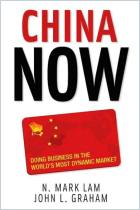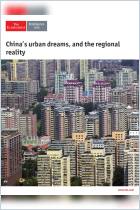
Read offline
áudio gerado automaticamente
1×
Faça o Login para ouvir o resumo em áudio.
áudio gerado automaticamente
Recommendation
Mass migrations of Chinese rural people to cities have altered industries and wealth in China’s metropolitan areas. This article by writer Qing He from the social science blog Zhi Ben She discusses the changing landscapes of Hong Kong, Shanghai and Shenzhen and how their economies might fare going forward. Beijing was noticeably left off the list, likely because the writer wanted to focus on business centers. Beijing, being the capital of China, is a city heavily influenced by politics.
Summary
About the Author
Qing He is the founder and editor in chief of the social science blog Zhi Ben She.
Learners who read this summary also read
Report
Book


















Comment on this summary or Iniciar a Discussão